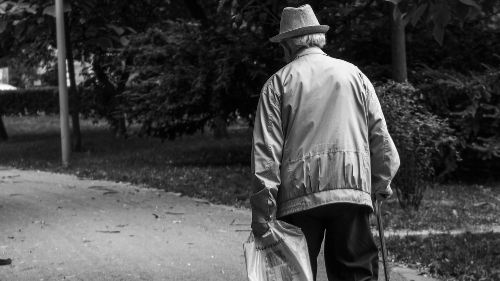Loneliness in Old Age Is an Invisible Wound
Aging often means watching the world change faster than you can adapt.
Children grow up, friendships scatter, and life’s pace slows down. What once
felt like peace can gradually turn into a deep, silent loneliness. One that’s
not always visible from the outside—but that runs deep on the inside.
Loneliness in old age is not always physical.
Many times, it’s emotional: feeling unheard, unneeded, unseen.
The loss of emotional and social roles
For much of their lives, older adults were pillars—they cared for others,
offered guidance, carried responsibilities. But as they age, many feel they no
longer have a defined place. That they’ve stopped being needed. This sense of
invisibility begins to erode their emotional well-being. And even if they live
with others, they may still feel profoundly alone.
The absence of meaningful conversations, repetitive routines, emotional
distance from children or grandchildren… all of it leaves marks. Hope dims, they
withdraw, their world fills with silence. And instead of asking for help, many
stay quiet—because they believe “I don’t want to be a burden,” or “this is just
how aging is.”
But emotional loneliness is not inevitable.
It’s a sign that something needs to be cared for.
Emotional presence is also a form of care
Being physically present is not always enough. What many older adults truly
need is to feel genuinely heard. To talk about their emotions without being
interrupted, dismissed, or redirected. To feel they still have a voice, a
story, a place in this world.
Therapy in older adulthood provides that space: a place where they can be
the protagonists of their own story, where they can express fears, regrets,
hopes still alive. Sometimes, simply being understood is enough to ease the
weight of loneliness.
If you have an older loved one who has become quieter, more withdrawn, more
distant—don’t assume it’s just part of aging. They may be going through a
loneliness they don’t know how to name.
And if you are feeling this way, remember:
You can still be heard. You can still be supported. You still matter.
Your story still holds value. Your presence still makes a difference. And
you don’t have to walk this stage alone.



